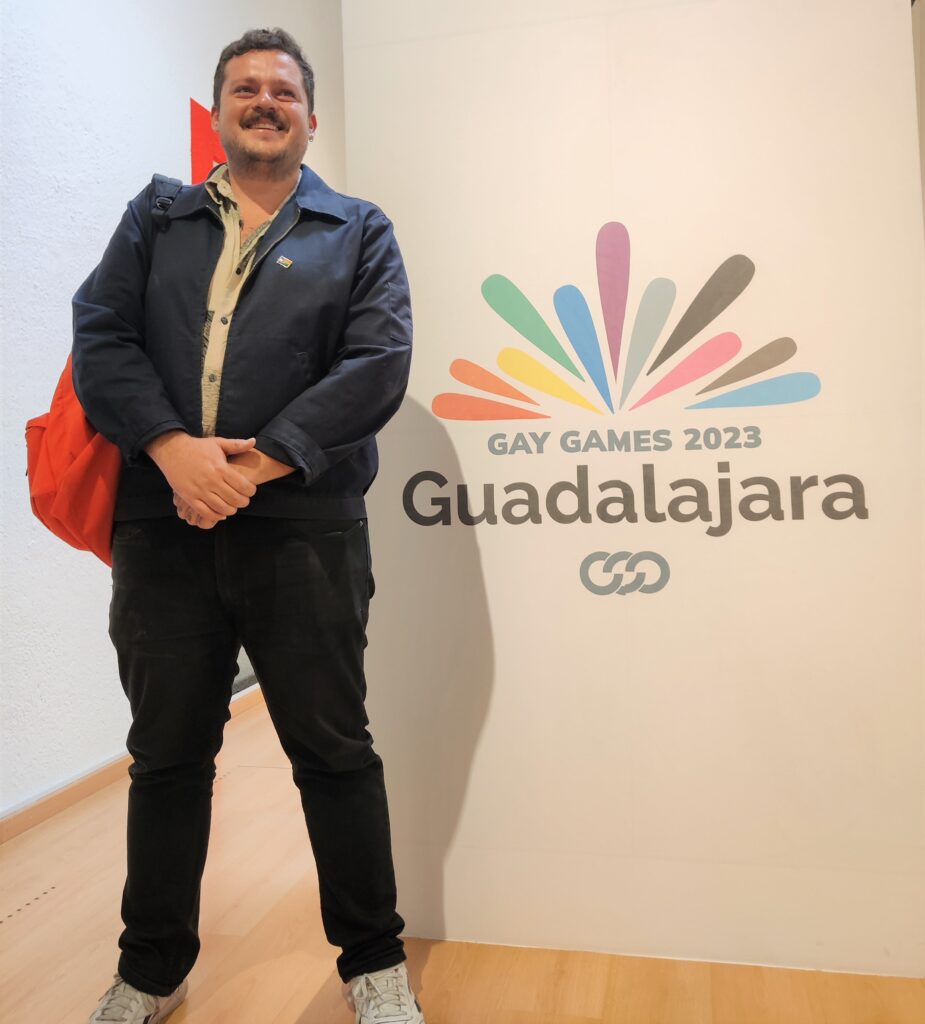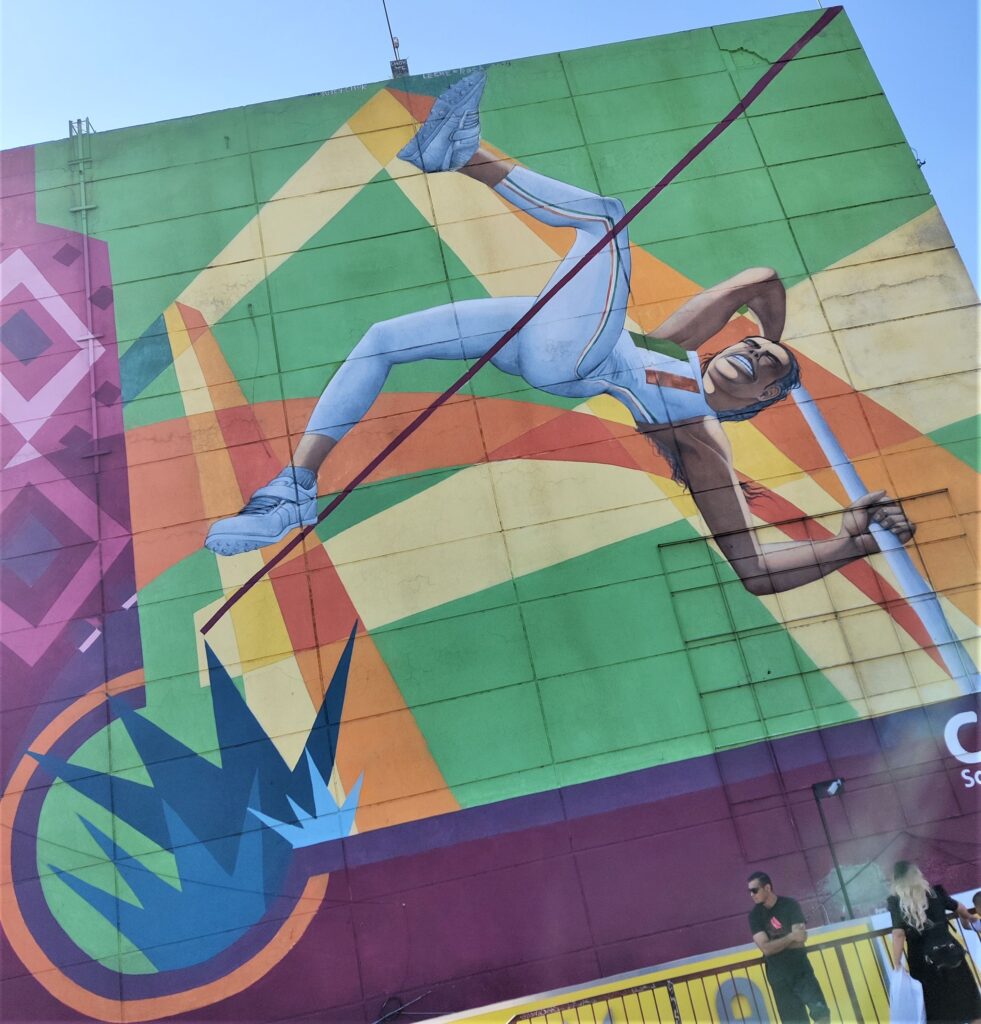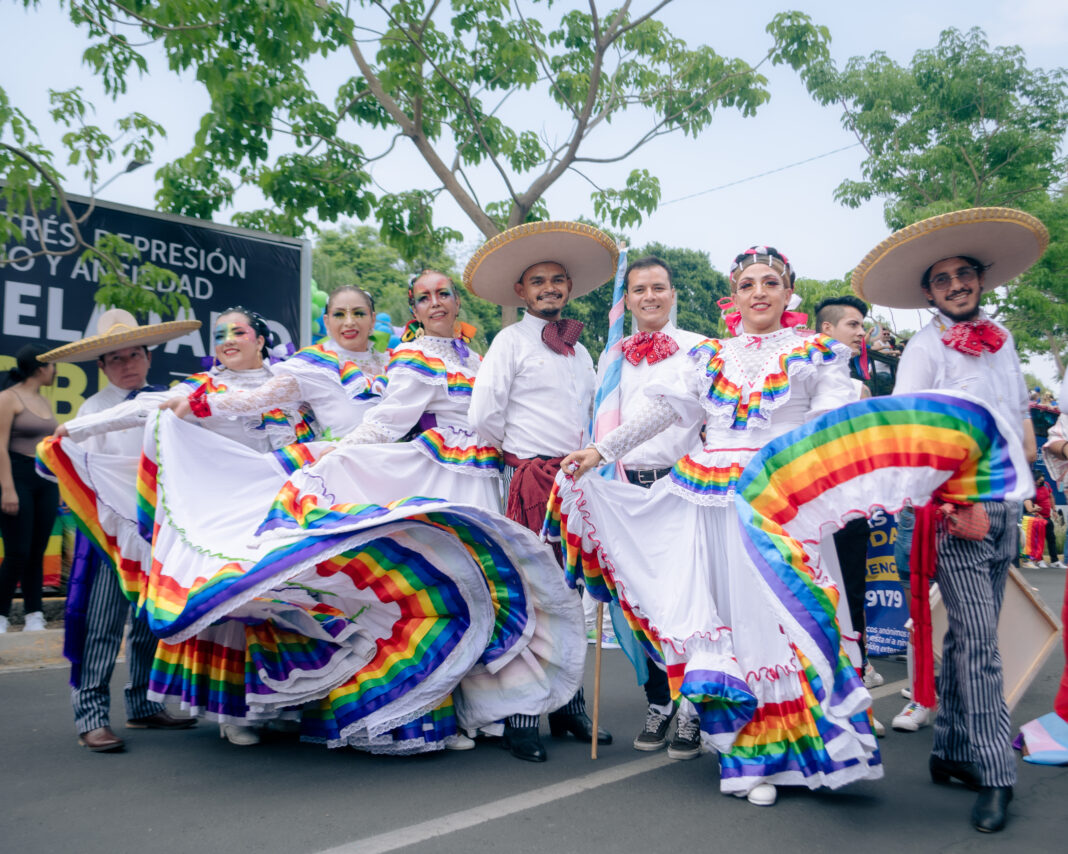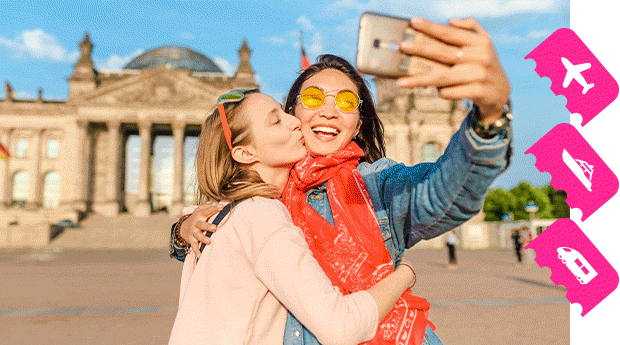In the middle of Arena Astros, a 4,000-spectator stadium that sits among various sports fields in Guadalajara, acrobats are dangling from the ceiling, dancers are leaping around over ginormous pink flags and Valentina from RuPaul’s Drag Race, an official global ambassador of the state, is humble-bragging about how much she loves the city and, obviously, how much it loves her. It’s November 2022, 12 months out from Guadalajara’s Gay Games, which take place from November 3 to 11, 2023. But this countdown launch party feels so over-the-top and polished, one suspects the city could pull off its hosting duties, oh, tomorrow.
Which is shocking because Guadalajara, a handsome and historic city increasingly attracting the attention of international visitors, wasn’t supposed to be hosting this edition of the Gay Games at all. The announcements about the Gay Games, the guest stars, the choreography, the presentations by officials and partners at the preview all came together at a ridiculously fast pace.
In 2017, Hong Kong was awarded the 11th Gay Games (initially 2022, then 2023 because of COVID-19), beating out a shortlist including Guadalajara and Washington, D.C. Yes, Hong Kong is still hosting the Gay Games in November. But with China’s tightening political grip on the special administrative region, which had particularly strict COVID-19 restrictions for visitors until late last year, the Federation of Gay Games started to worry about how the Hong Kong games might turn out. In February 2022, less than 22 months out, Guadalajara was added as the co-host and will hold its series of sporting events, cultural events and parties at the same time as Hong Kong. For the first time in the event’s history, athletes and fans have a choice of which Gay Games they’d like to participate in.
Though Guadalajara had a late start, it’s been, in a way, preparing for this for years. The city, whose greater metropolitan area has a population of almost five million, hosted the Pan American Games in 2011, for which it built many new sports venues. It lost (some would say it was robbed) a second bid to host the Gay Games, in 2026, to Valencia, Spain. So when the opportunity to host in 2023 was offered to them, even so late in the process, the city grabbed it.
“I love Hong Kong, I have many friends from there, and of course, we want to do it with them,” says Alex Serratos, an LGBTQ+ community leader, entrepreneur and head of the Guadalajara bid committee. He also participated in the 10-kilometre run at the Paris games in 2018, so he has a sense of the scale of the task. “I think the federation chose us to co-host because of our strong government support—they are behind us 100 percent—and we have the venues, all very good quality. We are the gayest city in Mexico and one of the gayest in Latin America. And we want to do it. All the people here are supporting this project.”
Government and community backing is important for the quality of such a large event—Paris’s 2018 games hosted more than 10,000 participants, 20,000 visitors and 750,000 spectators. But LGBTQ+ athletes, friends, family and fans also want to be able to enjoy the host city when they’re not on the field, the court, the pitch or the track. Nightlife, culture, safety and welcoming attitudes from locals are just as important. Guadalajara organizers are hoping they’ll score there, too. Puerta Vallarta, which is about a six-hour drive away, gets the sun seekers, Mexico City gets the hipsters, but Mexicans themselves will tell you that Guadalajara has the most fun LGBTQ+ community. Mexico’s third-largest metropolitan area has a reputation for being “classic” Mexico—you know, tequila and mariachi bands and gorgeous historic architecture—but it’s also artsy, stylish and, as Gay Games participants will soon find out, pretty damn sporty.

The state of Jalisco, where Guadalajara and PV are located, has traditionally been a conservative state, even by Mexican standards; the Roman Catholic church has seriously shaped the culture. Going back to the 1970s and ‘80s, LGBTQ+ people in the state suffered from an exceptional amount of police harassment, says Andres Treviño, the first-ever Sexual Diversity Director for Jalisco. In an effort to shake up the status quo, in 1982, a left-wing political party fielded four openly queer candidates for office, including Pedro Preciado in Guadalajara. During his campaign, Preciado joked that, being a candidate, the police wouldn’t be able to arrest him. But they did arrest him, based on a complaint by a café owner, and his arrest triggered one of the country’s first LGBTQ+ rights protests. That prompted the local community to become more organized. For decades, it was an uphill battle. In 1991, plans for the city to host the annual conference of the International Lesbian and Gay Association were cancelled because the government threatened to punish hotels that provided rooms for delegates (the conference was held in Acapulco instead).
But the attitudes of the government and the public have made an about-face over the last few years, signalled by the creation of Treviño’s position. His office has two main jobs: investigating human rights complaints filed by LGBTQ+ people and reviewing government initiatives with an eye for how they might affect queer people. In 2016, the state legalized same-sex marriage and in 2022, Jalisco banned so-called conversion therapy. “I personally rescued six people from it,” says Treviño, who wants to run for public office when his directorship ends. “What people are still fighting for in other states, we guarantee here in Jalisco.”
Even in the days when authorities were hostile, the city became known for its lively gay scene. The legendary nightclub Monica’s opened in the early 1980s and the space expanded dramatically over a couple of decades—statues and fountains and other opulent decor earned it a national reputation as a glamorous place to party (Monica’s sadly closed in 2016). Nowadays, the area of western downtown close to Parque Revolución is home to a wide array of bars, clubs, saunas and gay-friendly spots. During the Gay Games, Serratos says the gaybourhood, where much of the LGBTQ+ nightlife is located, will host a nine-day fun fest with events, performances, exhibitions and screenings that visitors can enjoy in between competitions.

Beyond the elegant corridor-like streets of the historic centre, the lush modern neighbourhoods of Americana and Lafayette contain chic LGBTQ+ friendly boutiques, Instagram-worthy eateries and elegant bars, including several that cater to LGBTQ+ patrons. Many of the city’s fancier hotels are here, too. The open-to-the-public closing ceremonies of the Gay Games will be held in this western part of the city, around the Glorieta La Minerva, a roundabout centred on one of the city’s most iconic monuments, a statue of the Roman goddess. The Glorieta is also where Guadalajara’s Pride parade, which usually takes place in June, begins.
Registration for athletes and other participants closes on October 1, 2023. The basic package, which costs about US$200, includes tickets to the opening and closing ceremonies, a nine-day public transportation pass, a welcome bag, a participation medal and access to the nine-day fun fest. Each sport has its own participation fee ranging from roughly US$50 (dodgeball and running) to US$265 (golf). Organizers are also planning to offer participants a card that will allow free access to the city’s LGBTQ+ nightlife venues and a PrEP-on-demand program for the nine days of the event. More details about events and performers for the Gay Games are expected to be available by May 2023.
“People are very excited,” says Serratos. “It’s going to be an amazing party.”
Guadalajara’s Gay Games take place November 3 to 11, 2023.
Read our insider’s guide to LGBTQ+ Guadalajara here.
Editor’s note: The cost of the writer’s trip to Guadalajara was covered by the city of Guadalajara. The sponsors of the trip did not direct or review coverage. The views expressed are the writer’s own.


